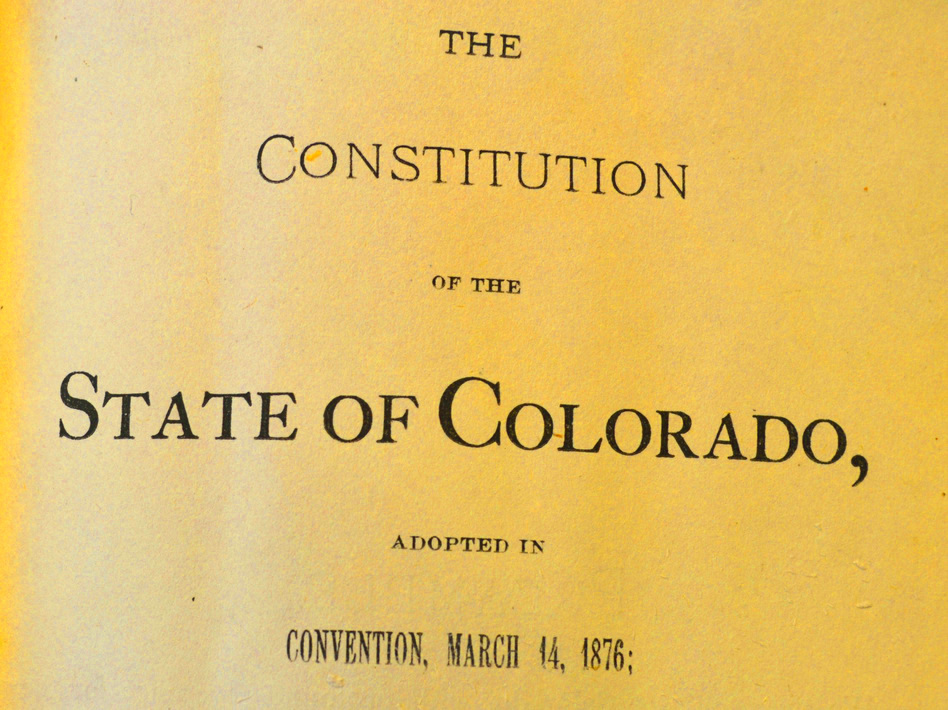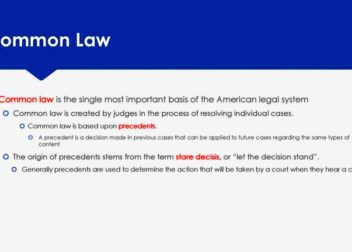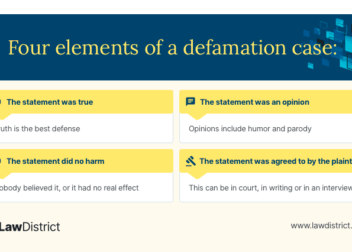Understanding Colorado’s Slander Laws
Slander is when someone makes untrue and hurtful remarks about another person through speech. It differs from defamation, which is in writing and known as libel. Imagine a community where gossip spreads rapidly – that captures the nature of slander. The damage goes beyond the words spoken; it’s about how these statements can damage a person’s reputation and affect their connections with others.
Slander can take place in different contexts ranging from chats to official addresses. It usually stems from misinterpretations, resentments or even ill will. Picture a scenario where someone wrongly claims a coworkers dishonesty during a meeting. The consequences can be substantial affecting both the accuseds professional journey and personal life.
Grasping the concept of slander is essential as it safeguards individuals from unwarranted harm. It underscores the significance of fact checking information before spreading it. Keep in mind that a single hurtful remark can, at times, cause greater damage than you realize.
Elements of a Slander Claim in Colorado

In order for a slander claim to be deemed valid in Colorado it needs to fulfill certain requirements. Here are the key components.
- False Statement: The statement made must be untrue. Truthful statements, no matter how damaging, do not qualify as slander.
- Spoken Communication: The statement must be made verbally to a third party. This can be in person, over the phone, or through other spoken means.
- Harmful Impact: The statement must cause damage to the person’s reputation or lead to other negative consequences, like losing a job.
- Unprivileged Statement: The statement should not be protected by legal privilege, such as comments made during judicial proceedings.
For example if someone wrongly alleges that a nearby store is engaged in actions and this accusation results in a decline in customers the proprietor of the establishment might pursue a defamation lawsuit. To build a case all these aspects must be demonstrated in a courtroom setting.
Defenses Against Slander Charges

When dealing with a slander allegation there are various arguments that can be employed to challenge the accusation. Lets take a closer look at them.
- Truth: If the statement is true, it cannot be considered slander. For example, if someone publicly discusses a fact that is accurate, even if it’s damaging, it isn’t slanderous.
- Opinion: Expressing an opinion rather than stating a fact isn’t considered slander. For instance, saying “I think that business practices are questionable” is different from accusing someone of fraud.
- Privilege: Certain statements made in specific settings, like courtrooms or legislative sessions, may be protected under legal privilege.
- Consent: If the person being spoken about consented to the discussion, this might serve as a defense. This is rare but can occur in certain contexts.
To defend against allegations of slander one must closely scrutinize the circumstances surrounding the statement and its accuracy. Seeking guidance from a professional can be beneficial for effectively handling these defenses.
Impact of Slander on Personal and Professional Life
Slander even though it’s sometimes brushed off as gossip can deeply impact various aspects of life. Picture the pain caused by a close friends unfounded claims circulating within your social circle or job setting. It goes beyond emotions; slander has the power to stain reputations, interfere with careers and harm personal connections.
In your life spreading rumors about someone can damage relationships and erode trust. Friends and family may doubt your integrity due to misleading information. The social consequences can be overwhelming emotionally causing feelings of loneliness and annoyance.
In a setting slander can have consequences. False accusations can impact work performance result in losing a job or hinder career progression. For instance a false allegation of misconduct could result in being fired or tarnishing ones professional image making it challenging to find future job opportunities.
In addition the emotional impact can be considerable. The continuous worry and tension stemming from the misleading remarks can take a toll on ones well being affecting daily routines and overall quality of life. It is essential to tackle these concerns swiftly to minimize lasting harm and initiate the journey towards recovery.
Steps to Take if You Are a Victim of Slander
If you end up being on the receiving end of false accusations it’s crucial to know how to navigate the situation. Here are a few steps to keep in mind.
- Document Everything: Keep a detailed record of the false statements and their impact. This includes dates, times, and any witnesses. Documentation is crucial if you decide to pursue legal action.
- Gather Evidence: Collect any written or digital proof related to the slander. This can include social media posts, emails, or text messages where the false statements were made.
- Address the Issue: Sometimes, confronting the person who made the slanderous remarks can lead to a resolution. However, this approach should be handled delicately to avoid escalating the situation.
- Seek Legal Advice: Consulting with a lawyer experienced in defamation cases can help you understand your rights and the best course of action. They can guide you through the legal process and ensure your case is handled properly.
- Focus on Your Well-Being: Dealing with slander can be emotionally taxing. It’s important to seek support from friends, family, or a mental health professional to navigate this challenging time.
By following these actions you can regain control and effectively deal with the harm caused by slander.
Legal Remedies Available for Slander
If you find yourself a target of false accusations, there are various legal avenues you can explore to pursue fairness and restitution. Here’s a breakdown of the choices at your disposal.
- Filing a Lawsuit: One of the primary remedies is to file a lawsuit for defamation. This involves proving that the slanderous statements were false, damaging, and made with a certain level of fault.
- Seeking Damages: If successful in court, you may be awarded damages for the harm caused. This can include compensatory damages for emotional distress and financial losses, as well as punitive damages in some cases.
- Requesting a Retraction or Apology: In some cases, a court may order the person who made the false statements to issue a retraction or public apology. This can help repair your reputation and set the record straight.
- Injunctions: An injunction may be sought to prevent further slanderous statements. This legal order can help stop the spread of false information and prevent additional harm.
Every situation is different, so it’s crucial to consult a professional to find the best solution for your circumstances. Dealing with the intricacies of the law can be challenging. However with the assistance you can pursue fairness and start rebuilding your image.
How to Prevent Slander
Avoiding slander is essential to uphold both personal and professional connections. Think of it as erecting a solid barrier to shield your garden against unwanted trespassers. Here are some actionable strategies to safeguard yourself and those around you from the harmful impact of slander.
- Be Cautious with Your Words: Think before you speak. Whether it’s a casual conversation or a heated discussion, be mindful of the potential impact your words can have. It’s always better to address issues directly with the person involved rather than discussing them with others.
- Promote Open Communication: Encourage an environment where concerns can be expressed openly and constructively. In professional settings, having clear channels for feedback and conflict resolution can reduce the chances of misunderstandings that lead to slander.
- Educate Yourself and Others: Understanding what constitutes slander and the consequences it can have is vital. Share this knowledge with friends and colleagues to foster a respectful and aware community.
- Practice Empathy: Before sharing information, consider how it might affect the person it’s about. Empathizing with others can help you make more thoughtful decisions about what to say.
- Encourage Positive Discussions: Shift conversations towards constructive topics and avoid gossip. Building a culture of positivity can help reduce the occurrence of slanderous remarks.
Avoiding defamation requires a mindset and promoting an atmosphere of empathy and consideration. By implementing these measures you not safeguard your own interests but also play a role in creating a community that values support and transparency.
Seeking Legal Advice for Slander Cases
When faced with slander seeking counsel is crucial. Its similar to reaching out to a mechanic when your vehicle malfunctions – having the expertise can truly impact the outcome. Here are ways to approach this journey smoothly.
- Find an Experienced Attorney: Look for a lawyer who specializes in defamation or slander cases. They will have the expertise needed to guide you through the complexities of your case.
- Prepare Your Case: Gather all relevant evidence, such as recordings, written statements, or any other documentation that supports your claim. A well-prepared case is crucial for effective legal representation.
- Understand Your Options: Discuss the potential legal strategies with your attorney. They can explain the possible outcomes and help you choose the best approach based on your situation.
- Evaluate the Costs: Legal battles can be expensive. Make sure to discuss the costs and payment structures with your lawyer upfront. Understanding the financial aspects will help you make informed decisions.
- Follow Legal Advice: Once you have chosen a legal path, follow your attorney’s advice carefully. Their guidance will be crucial in navigating the legal process and achieving a favorable outcome.
Getting advice can give you insights into your rights and choices making sure you’re ready to tackle a slander case. It’s like having a partner by your side to assist you in reclaiming your reputation and pursuing fairness.
Frequently Asked Questions
When it comes to slander there are often a lot of questions that come up. Here are some frequently asked questions that could help address your concerns.
- What is the difference between slander and libel? Slander refers to verbal defamation, while libel pertains to written or published defamation. Both involve false statements that harm someone’s reputation, but the medium through which they are communicated differs.
- Can I sue for slander if the statement was made privately? Yes, slanderous statements made in private can still be grounds for a lawsuit if they cause significant harm and meet the legal criteria for defamation.
- How long do I have to file a slander lawsuit? The time limit for filing a slander lawsuit varies by jurisdiction. In Colorado, you generally have one year from the date of the slanderous statement to file a claim. It’s essential to consult with a lawyer to understand the specific timeframe for your case.
- Can apologies or retractions help in a slander case? Yes, in some cases, a public apology or retraction can mitigate the harm caused by slander. However, this may not always be sufficient to address the full extent of the damage, especially if the slander has had significant personal or professional repercussions.
- What should I do if someone threatens to sue me for slander? If you receive a threat of a slander lawsuit, consult with a legal professional immediately. They can help you understand your position, gather evidence, and respond appropriately to protect your interests.
While these responses offer an overview every case is different. Seeking guidance from a professional will provide you with personalized recommendations to tackle your specific issues.
Conclusion
Dealing with slander is no trivial matter it goes beyond tarnishing your reputation. It affects your emotions, relationships and career. By grasping the concept of slander and recognizing its potential impact you can better equip yourself to navigate such situations with resilience and insight. Remember that prevention is always preferable to remedy. Fostering communication and verifying information can significantly contribute to preventing slander. If you find yourself a target taking swift and informed action is essential. Seeking advice from a professional ensures that you have support in this battle. As with challenges approaching slander, with poise and resolve can aid you in regaining your peace of mind and restoring your reputation. Remain watchful stay informed and don’t hesitate to seek assistance when necessary.


